The IEEE Transactions on Technology and Society are calling for special issue proposals from interested members of the international community.
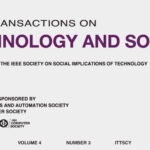


The IEEE Transactions on Technology and Society are calling for special issue proposals from interested members of the international community.

The IEEE TTS leadership is recruiting up to 30 Associate Editors and 7 Senior Editors as a complement to the current Editorial Board

The purpose of this special issue is to explore and address complex securitization-related challenges, from a broader perspective and across various dimensions and sectors, that transcend disciplinary boundaries, focusing on the role of technology relevant to the securitization of people and place, while also considering the transdisciplinarity and the socio-historical originals of securitization.

This dialogue occurred between Katina Michael and ChatGPT on 2 January 2023 on the topic of mental health and the usefulness of digital mental health apps.

Organizations are gaining awareness that digital products and services targeted at the children’s market segment need to go beyond adopting the “mindset” of a child. Rather, it is necessary to actually invite children to participate in the design process.

In the first six months of 2018, eight New York City yellow cab drivers, impacted by big tech disruption on the taxi industry, took their own lives. “I am not a Slave and I refuse to be one,” wrote one in his suicide note.

The 2022 IEEE International Symposium on Digital Privacy and Social Media (ISDPSM 2022) with the theme “Applying Engineering Solutions to a Complex Set of Issues” will take place in Silicon Valley, San Jose, California, USA on August 1, 2022 at San Jose Marriott Hotel.

As the COVID-19 pandemic shows, crises can catalyze socio-technical changes at a speed and scale otherwise thought impossible. Crises expose the fragility and resilience of our sociotechnical systems – from healthcare to financial markets, internet connectivity, and local communities.
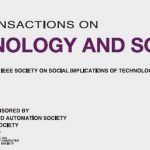
An element of the expansion of digital technologies is a shift in Artificial Intelligence (AI) technology from research laboratories into the hands of anyone with a smartphone. AI powered search, personalization and automation are being deployed across sectors, from education to healthcare, to policing, to finance. Wide AI diffusion is then reshaping the way organizations, communities and individuals’ function. The potentially radical consequences of AI have pushed nation states across the globe to publish strategies on how they seek to shape, drive and leverage the disruptive capabilities offered by AI technologies to bolster their prosperity and security.
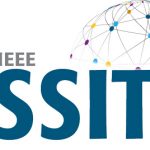
Crises expose the fragility and resilience of our sociotechnical systems – from healthcare to financial markets, internet connectivity, and local communities. Submissions are especially invited on but not limited to the following topics intersecting with COVID-19 and crises:

In 2021, Terri Bookman will become SSIT Administrator, and Heather Hilton, IEEE Publications Staff, will be Editorial/Production Associate for T&S Magazine

*Now a Virtual Conference* — IEEE ISTAS 2020 Public Interest Technology (Arizona State University) November 12 – November 14 – The International Symposium on Technology and Society (ISTAS) is the flagship conference of the IEEE’s Society on the Social Implications of Technology- the oldest society and conference of its kind. ISTAS is a multi/inter/trans-disciplinary forum for engineers, policy makers, entrepreneurs, philosophers, researchers, social scientists, technologists, and polymaths to collaborate, exchange experiences, and discuss the social implications of technology.
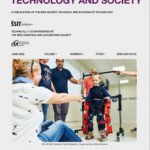
IEEE Transactions on Technology and Society is Open Access for calendar year 2020.

Manufacturing Consent: The Modern Pandemic of Technosolutionism
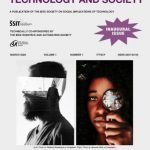
IEEE Transactions on Technology and Society is a quarterlyonline only publication. The publication accepts submissions on a rolling basis. The Transactions publishes annually in March, June, September and December.

Somehow at the heart of sci-fi is returning power to the people who almost always regain control before things get completely out of hand. But we learn that our freedom comes at a cost. The reassuring aspect of Maynard’s work is that justice prevails, despite the ominous lurking of some technological beast that is waiting to be unleashed.
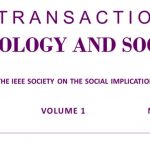
The IEEE Society on the Social Implications of Technology (SSIT) are proud to announce the Society’s second refereed publication, the IEEE Transactions on Technology and Society (IEEE-TTS).

SSIT’s new IEEE Transactions on Technology and Society will launch in March 2020. Information for Authors and General Call for Papers are here.

Sjöström argues that NFC chips are a solution in search of a problem, have limited utility, are less efficient than alternatives, and pose significant health risks.

Katina Michael – We are Becoming Enslaved by our Technology from the Intelligence Squared (IQ2) debate at the City Recital Hall, Sydney, Australia. (2014) Assembled with pictures plundered from the 14 corners of the Internet.